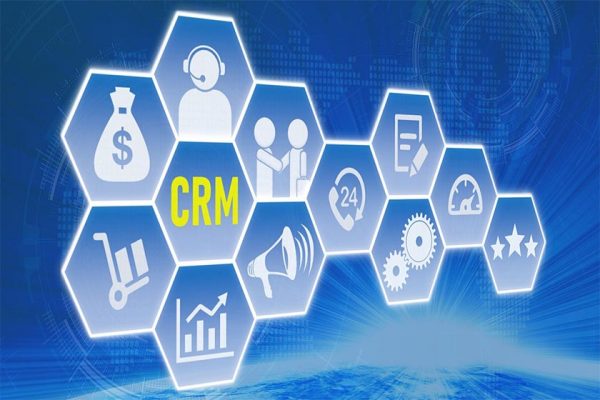Are you tired of juggling multiple systems and spreadsheets just to manage your financial services customers? Do you want to streamline your sales and marketing processes, improve customer satisfaction, and drive growth for your business?
Then it’s time to consider a financial services CRM. In this blog, we will share the keys to choose the best financial services CRM.
1. Scalability
When choosing a financial services CRM, you should look for a product that is scalable. The software should be able to grow with the business. It should be able to handle increased data volume and number of users and customers without slowing down or becoming cumbersome.
Choosing a CRM that is scalable and can grow with your business can be challenging, but it is essential for ensuring long-term success.
Here are some tips to help you choose the right financial CRM for your needs:
- Identify your business requirements: Start by understanding your business needs and the problems you are trying to solve. This will help you prioritize the features you need in a financial CRM.
- Look for scalability: Choose a financial CRM that can easily adapt to changes in your business, such as an increase in clients or the addition of new services. This will ensure that your CRM can continue to meet your needs as your business grows.
- Consider integrations: A financial CRM that integrates with other systems, such as accounting software or payment gateways, can streamline processes and increase efficiency.
- Evaluate security: Ensure that the financial CRM you choose is secure and complies with data privacy regulations, such as GDPR and HIPAA.
- Get user feedback: Look for financial CRMs that have been used and recommended by other financial services providers. Read reviews and case studies to get a better understanding of how the CRM has helped businesses like yours.
- Try before you buy: Most financial CRMs offer free trials or demos. Take advantage of these to test the CRM and see how it works in your business environment.
- Look for vendor support: Make sure the vendor provides excellent customer support, regular software updates, and has a proven track record of innovation.
2. Software as a Service (SaaS)
SaaS is a subscription-based model, where you pay for the software as you use it. It’s easy to implement and maintain, with no long-term costs or infrastructure required.
The software is cloud-based, so you won’t have to worry about maintaining a server or making sure your IT team has the resources to support it. It’s scalable and customizable. So, you can configure it to fit your needs and grow with your business.
Cloud-based CRMs offer a number of benefits for businesses, including:
- Accessibility: Cloud-based CRMs can be accessed from anywhere with an internet connection, making it easier for remote teams to collaborate and access customer data.
- Scalability: It can be easily scaled up or down as needed, making it easier to handle fluctuations in business volume and accommodate growth.
- Cost-effectiveness: Cloud-based CRMs typically have a lower upfront cost compared to on-premise solutions, and subscription-based pricing models make it easier to manage costs.
- Security: They are typically hosted by companies with strong security measures in place, reducing the risk of data loss or theft compared to on-premise solutions.
- Automation: They often offer automation features, such as automated email campaigns, that can help save time and increase efficiency.
- Integration: It can be easily integrated with other systems, such as accounting software, payment gateways, and social media platforms, to provide a complete view of customer interactions and transactions.
- Continuous updates: They are updated frequently by the vendor, ensuring that businesses always have access to the latest features and security improvements.
3. Customizability and Usability
CRM software should be easy to use. The more customizable a CRM is, the more likely it is that you’ll find one that fits your needs. The best financial services CRMs are also very user-friendly and easy to integrate with other systems like ERP or accounting software.
Choosing a user-friendly CRM can help increase adoption and ensure that your sales, marketing, and customer service teams are able to efficiently manage customer relationships.
Here are some tips to help you choose a CRM that is user-friendly:
- Consider ease of use: Look for a CRM that is intuitive and easy to use, with a clean, simple interface that is straightforward to navigate.
- Evaluate customization options: It allows for customization and personalization can help increase user adoption and improve overall efficiency.
- Look for mobile compatibility: It offers mobile compatibility that is essential for sales teams on-the-go and can help improve productivity and responsiveness to customers.
- Consider integration options: Look for a CRM that integrates with other tools and systems you use, such as email, calendar, and social media, to help streamline processes and improve efficiency.
- Get user feedback: Look for CRMs that have been used and recommended by others in your industry. Read reviews and case studies to get a better understanding of how the CRM has helped businesses like yours.
4. Integrations with Other Systems
Connecting your CRM with other systems is a critical feature of any financial services CRM. This allows you to import data from other systems, such as QuickBooks and Salesforce, and it can also help you manage your sales pipeline more efficiently.
Integration is important because it gives customers access to their financial information wherever they are in the world by allowing them to view their transactions on multiple devices (phones, tablets) at once.
This means less time spent searching for information or logging into separate platforms like Mint or TSheets!
5. Identify the Business Needs
It is a crucial first step in choosing the right CRM. Here are some steps to help you identify your business needs:
- Assess current processes: Take a close look at your current sales, marketing, and customer service processes to identify areas that could be improved or streamlined with a CRM.
- Define your goals: Clearly define what you want to achieve with a CRM, such as increased sales, improved customer engagement, or streamlined processes.
- Gather user feedback: Talk to your sales, marketing, and customer service teams to understand their pain points and what they would like to see in a CRM.
- Analyze data: Look at your customer data to identify trends and patterns that could inform your CRM strategy. This can help you better understand your customers and what they need from you.
- Evaluate your technology stack: Take inventory of the technology and systems you already use, such as email, accounting software, and payment gateways, to determine how a CRM could integrate with these tools.
6. Consider the Functional Requirements
Before you can choose the best CRM for your business, it’s important to consider how each one will meet the functional requirements of your business.
- What are the functional requirements of your business? Are they related to sales or marketing? How does this impact what kinds of data should be included in a financial management software solution? How often those reports should be published? Does it matter if there is a tight integration between other software systems, like accounting or payroll software? So, can employees access their payroll information seamlessly from within their CRM accounts without having to log into multiple applications each time they need payroll info (or vice versa)?
- What are the functional requirements of your customer? Do they want daily updates on their account balances so they know whether they have enough money left over at any given time; weekly statements detailing all transactions made during that week; monthly statements detailing all transactions made throughout the month; etc.? Did those same customers ask for monthly statements even though most people do not keep track of these types of items manually anymore—instead relying on automated funds transfers such as direct deposit payments into their bank accounts every month when bills arrive? If so then maybe an automated service would suit them better than something where users must log into separate programs each time they want to access information about what happened last month/year/etc.
7. Evaluate the Capabilities of CRM Software
Before you choose a CRM software, it is important to carefully evaluate the capabilities of each CRM system. Your needs and budget will play a large role in determining which solution is best for your business.
Here are some questions that will help guide your decision:
- What features and functions do I need?
- How much does it cost? Is there a free trial or demo version available? Can I try before buying? Do they offer any discounts based on volume purchases or other factors such as tax status or length of contract term (monthly vs annual)?
- Does the company provide support during installation/upgrades/maintenance activities, etc.? This can be an important factor when choosing between different vendors since not all companies provide 24/7 phone support even though they may advertise this feature prominently on their website.”
8. Make Sure to Compare Different Software Options
The process of comparing software options is a bit more complicated than it sounds. You have to consider the different features and functions that each service offers, as well as make sure they all fit within your budget and company needs.
It’s also important to understand what kind of data you want in your CRM platform—some are more customizable than others.
Comparing different CRM software options can help you find the best fit for your business.
Here are some tips to help you compare different CRM software options:
- Define your needs: Start by defining your business needs, such as increased sales, improved customer engagement, or streamlined processes. This will help you narrow down your search to CRMs that have the features and capabilities you need.
- Evaluate features: Look at the features offered by each CRM and compare them to your needs. Make sure the CRM you choose has the features you need to achieve your goals.
- Consider integrations: Look at the integrations offered by each CRM and evaluate how they would work with the systems and tools you already use, such as email, accounting software, and payment gateways.
Is HubSpot the Best Financial Services CRM?
HubSpot is considered the right financial CRM by many organizations because it offers a range of features that are designed to help financial service providers manage their customer relationships effectively.
Some of the key benefits of using HubSpot as a financial CRM include:
- Customer Management: It provides a centralized database for managing customer information, so you can easily access and update customer records.
- Lead Management: HubSpot’s lead management tools help financial service providers nurture leads and convert them into customers.
- Marketing Automation: It offers a suite of marketing automation tools that enable financial service providers to send targeted, personalized communications to their customers and prospects.
- Sales Alignment: It helps financial service providers align their sales and marketing teams to ensure that they are working together to achieve common goals.
- Reporting and Analytics: It provides a range of reporting and analytics tools that help financial service providers track their performance and make data-driven decisions.
HubSpot is designed to help financial service providers improve their customer relationships, drive growth, and increase efficiency. Free Trial available.
Conclusion
We hope that this article has helped you with your decision on which software to use for your business.
The key takeaway is that there are many different software options available, each having their own set of pluses and minuses. It’s important to think about what you want from a CRM (or any other software) before making any purchase or choosing what features are most important to you.
If you want to get a right CRM tool for financial service then the HubSpot CRM can be an ideal choice for you. Sign Up now and enjoy FREE Trial.




